Gardening in winter might sound challenging, but Sydney’s mild winters provide a unique chance for new and experienced gardeners to grow a huge range of plants. From hearty vegetables for soups and stews to aromatic herbs, vibrant flowers, and hardy fruits, winter can be an unexpectedly “fruitful” growing season!
The question is what to plant in winter in Sydney — and what will lead to an impressive harvest. Let’s dive in.

Winter is ideal for growing various vegetables that thrive in cooler weather. These vegetables often have enhanced flavours and textures when grown in the cold, and they generally have fewer issues with pests and diseases that are more active in spring and summer.
Here are some popular winter vegetables to grow in Sydney!

Broccoli, a powerhouse of vitamins and minerals, thrives in the cool climate of Sydney's winter.
For optimal growth, broccoli should be planted in an area that receives at least six hours of direct sunlight daily. It prefers well-draining soil, as standing water can lead to root rot and other diseases. A light, fertile soil enriched with organic compost will support its growth needs, allowing it to develop full, lush heads.
Regular watering that keeps the soil moist but not soggy is ideal for broccoli.

Cauliflower is a cold-loving crop similar to broccoli in its cultural needs but requires a bit more attention to develop its white, edible heads. It thrives in cooler temperatures which help tighten its curds, preventing the flowering that warm weather can cause.
Cauliflower needs fertile, well-aerated soil to grow. Enriching the soil with high-quality compost and ensuring it is loose enough to allow for proper root expansion is key.
Consistent moisture and nutrient availability are crucial for fostering healthy growth.

Spinach is a fast-growing leafy green that is incredibly hardy during winter. It prefers moist, nitrogen-rich soil, which supports its rapid leaf production.
Spinach can tolerate partial shade, making it versatile for various garden spots. Its ability to withstand low temperatures and continue producing leaves makes it a valuable crop for continuous harvesting throughout winter.
To keep spinach producing, regular harvesting and adequate fertilisation are recommended, as this stimulates new growth and prolongs the productivity of the plant.

The natural sweetness of carrots is enhanced by the cool winter weather, which converts starches in the root into sugars.
Carrots perform best in loose, sandy soil that allows for unimpeded root growth. Heavy or clay-rich soils can cause carrots to become stunted or misshapen.
Preparing the bed with well-rotted organic matter can improve drainage and provide the nutrients carrots need to develop their characteristic long, straight roots.
Thinning seedlings early can help prevent crowding and ensure that each carrot has enough space to mature properly.

Peas are ideal for the cooler months as they need to mature before the heat of summer sets in. They should be sown directly into the garden, as they do not transplant well.
Peas require a trellis or stakes for support as they grow, which helps to keep the pods clean and makes them easier to harvest. They benefit from well-draining soil and regular watering, especially once flowers and pods begin to form.
Peas fix nitrogen in the soil, making them not only a delicious crop but also beneficial for improving soil fertility for future plantings.

Herbs are remarkably resilient plants that can adapt to various climates, including Sydney’s cool, damp winter weather. In fact, winter herbs in Sydney tend to thrive, offering fresh flavours and aromas that add extra depth to many dishes.

Parsley is a hardy biennial herb used for its fresh, vibrant flavour in dishes around the world. It can continue to grow through Sydney's winter, thanks to its tolerance for cooler temperatures.
Parsley prefers a sunny to partly shaded position and well-draining soil. It needs regular watering but the soil should not be waterlogged. Mulching around the plants can help maintain soil moisture and protect the roots from sudden temperature changes.
Regular harvesting of the outer leaves encourages the plant to produce new growth continuously, ensuring a steady supply of fresh parsley throughout the season.

Coriander is recommended for late autumn planting, which allows it to mature during the cooler months, avoiding the bolting to seed that warmer temperatures can encourage.
Coriander grows best in a sunny spot that receives ample morning light and some afternoon shade to protect it from the midday sun, even in winter. The soil should be kept moist, as coriander leaves can wilt quickly if the ground dries out.
Since coriander can be sensitive to transplanting, it's best sown directly where it is to grow, either in the ground or in deep pots, and it may benefit from light feeding with an organic fertiliser to support its rapid growth.

Mint is a robust and vigorous perennial herb that can easily withstand the damp coolness of winter. Its hardiness makes it an excellent choice for winter gardening, but it is also known for its aggressive growth habit. To prevent it from taking over the garden, mint is ideally grown in containers or raised garden beds where it can be contained effectively.
Mint prefers a position with partial shade, though it can tolerate full sun, and it requires moist, well-draining soil to thrive. Regular harvesting helps maintain its bushy growth and encourages the production of fresh aromatic leaves.

Winter is usually considered a dormant season for fruit, but Sydney’s mild winter climate can be ideal for growing certain fruits that can adapt and even thrive during the cooler months, ultimately extending the harvesting calendar.

While commonly associated with summer, strawberries can be successfully grown in winter.
Planting strawberries in early winter allows them to establish themselves during the cooler months, setting them up for a burst of growth as the weather begins to warm. This timing can lead to a fruitful harvest in late winter or early spring.
To maximise their potential, strawberries should be planted in well-draining soil in a sunny location. Mulching around the plants helps to keep the roots warm and retain moisture in the soil, crucial for their growth during the cooler days.

Citrus trees, including lemons, limes, and mandarins, are well-suited to winter growth in Sydney thanks to their tolerance for a range of temperatures, including the milder winters.
These trees require a sunny position to maximise sunlight exposure, which is critical during the shorter winter days. Well-draining soil is essential to prevent waterlogging and root rot, common issues during Sydney's rainy winter months.
Citrus trees may need some frost protection during particularly cold nights but generally will continue to grow and even produce fruit during winter, with the added benefit of fewer pests and diseases that are more active in warmer conditions.

Rhubarb is another plant that fares well in winter. As a perennial, it goes dormant in summer and revives in cooler weather. Planting rhubarb crowns during winter allows them to establish a strong root system, which is crucial for supporting vigorous growth in spring.
The plant should be placed in a spot with full sun to partial shade and in well-drained soil enriched with plenty of organic matter to feed the growing plants.
Rhubarb should not be harvested heavily in its first year, allowing it to strengthen and expand. By the following spring, it can be harvested more fully, providing a delicious, tart addition to desserts and other dishes.
Winter flowers to grow in Sydney
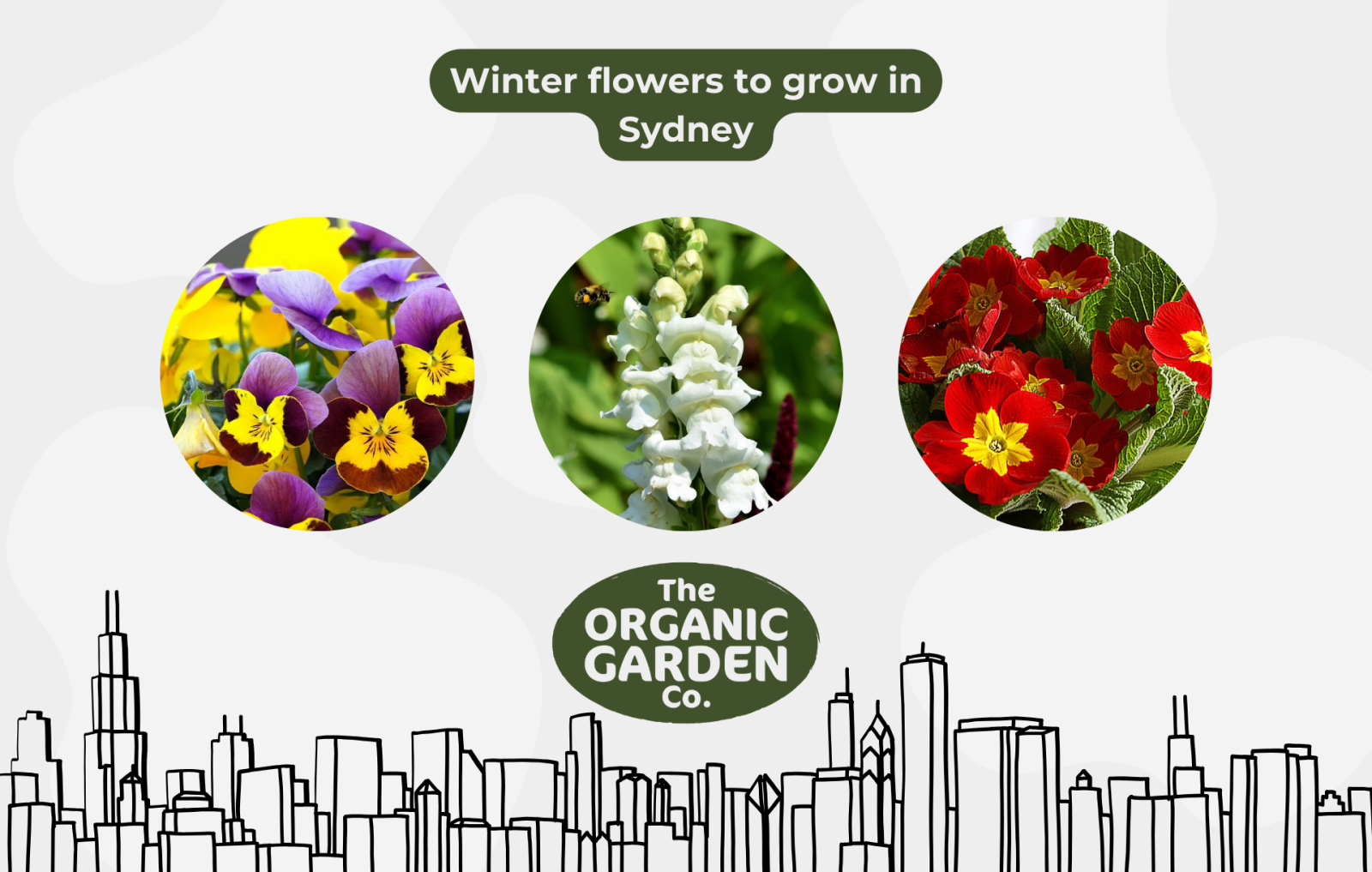
Planting flowers in your winter garden is a great way to brighten up the otherwise dreary, colder months, offering vibrant splashes of colour and life where other plants have retreated into dormancy. Here are some flowers that are particularly well-suited for the winter climate in Sydney!
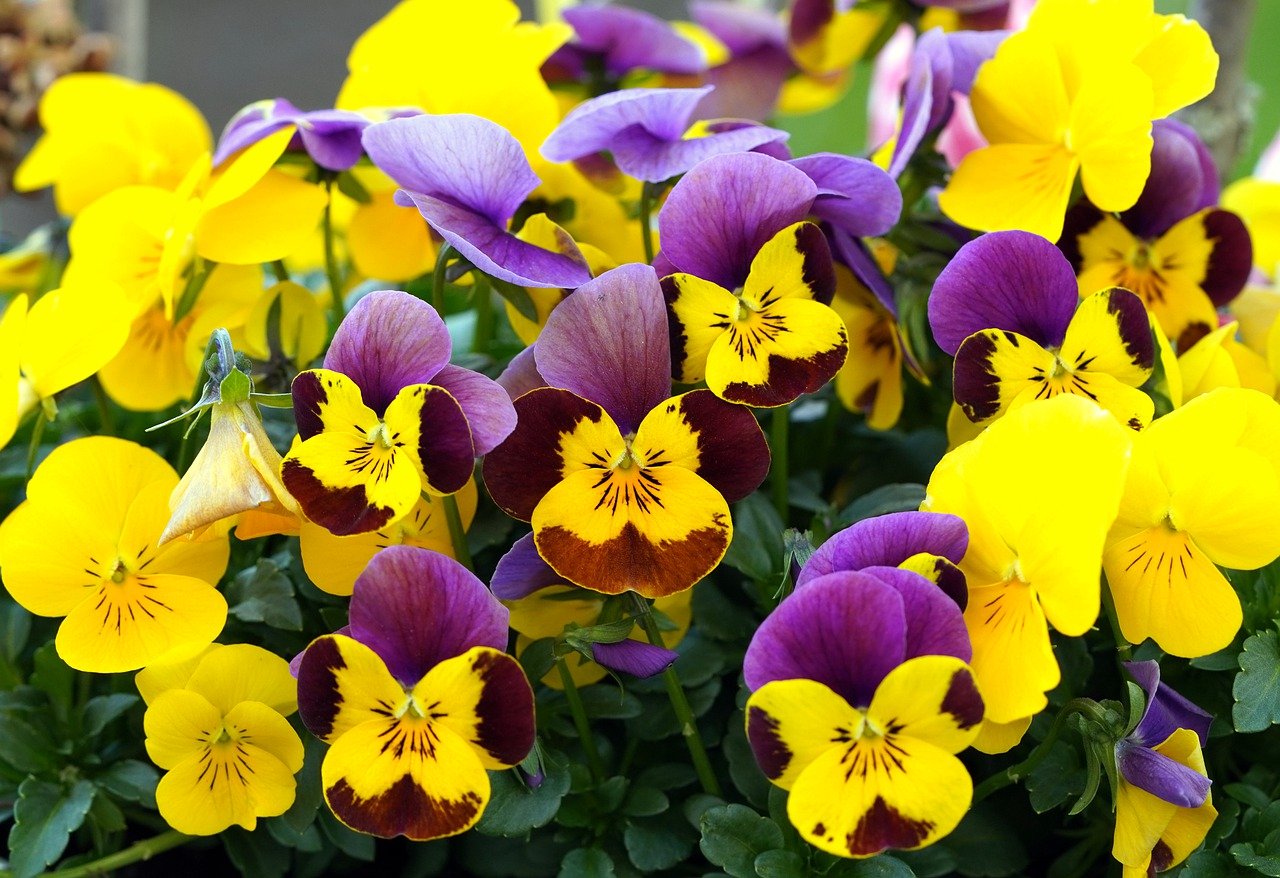
Pansies are exceptionally hardy flowers that can thrive during the winter. Known for their broad range of bright colours and patterns, including blues, purples, reds, and yellows, pansies can maintain blooming even in colder weather, provided they are properly cared for.
They prefer a sunny or partly shaded spot and require well-draining soil. Mulching around the pansies helps keep the roots warm and conserves moisture. Deadheading the flowers regularly will encourage them to continue blooming throughout the winter months.
Their cheerful faces and variety of colours make pansies a popular choice for winter gardens, containers, and borders.
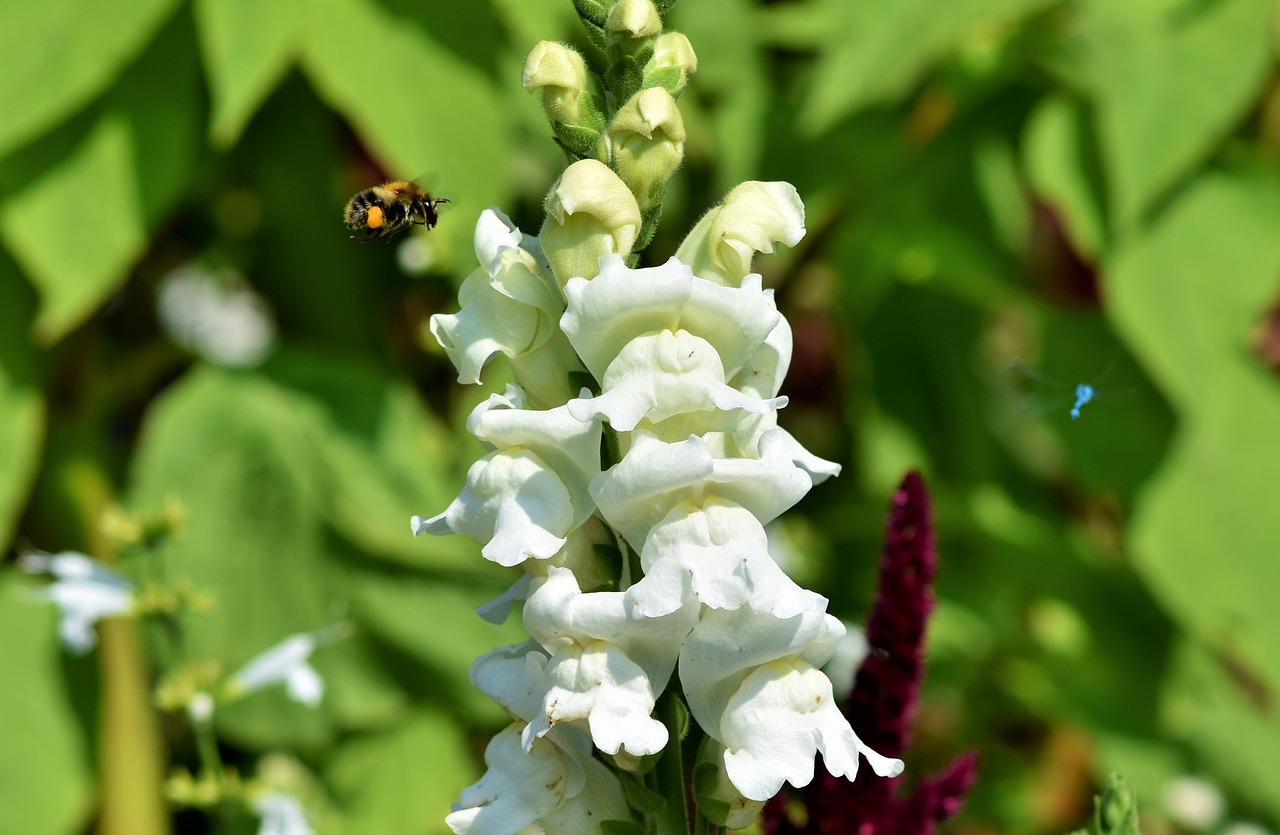
Snapdragons are characterised by their tall spikes adorned with a cascade of colourful flowers, they can add height and structure to floral displays.
Snapdragons are robust and can endure cooler temperatures, making them ideal for Sydney's winter. They flourish in full sun to partial shade and need moist, well-drained soil to grow effectively. Snapdragons are not only beautiful in gardens but also make excellent cut flowers for indoor arrangements.
Regular cutting promotes more blooms, extending their decorative life both in the garden and in the home.
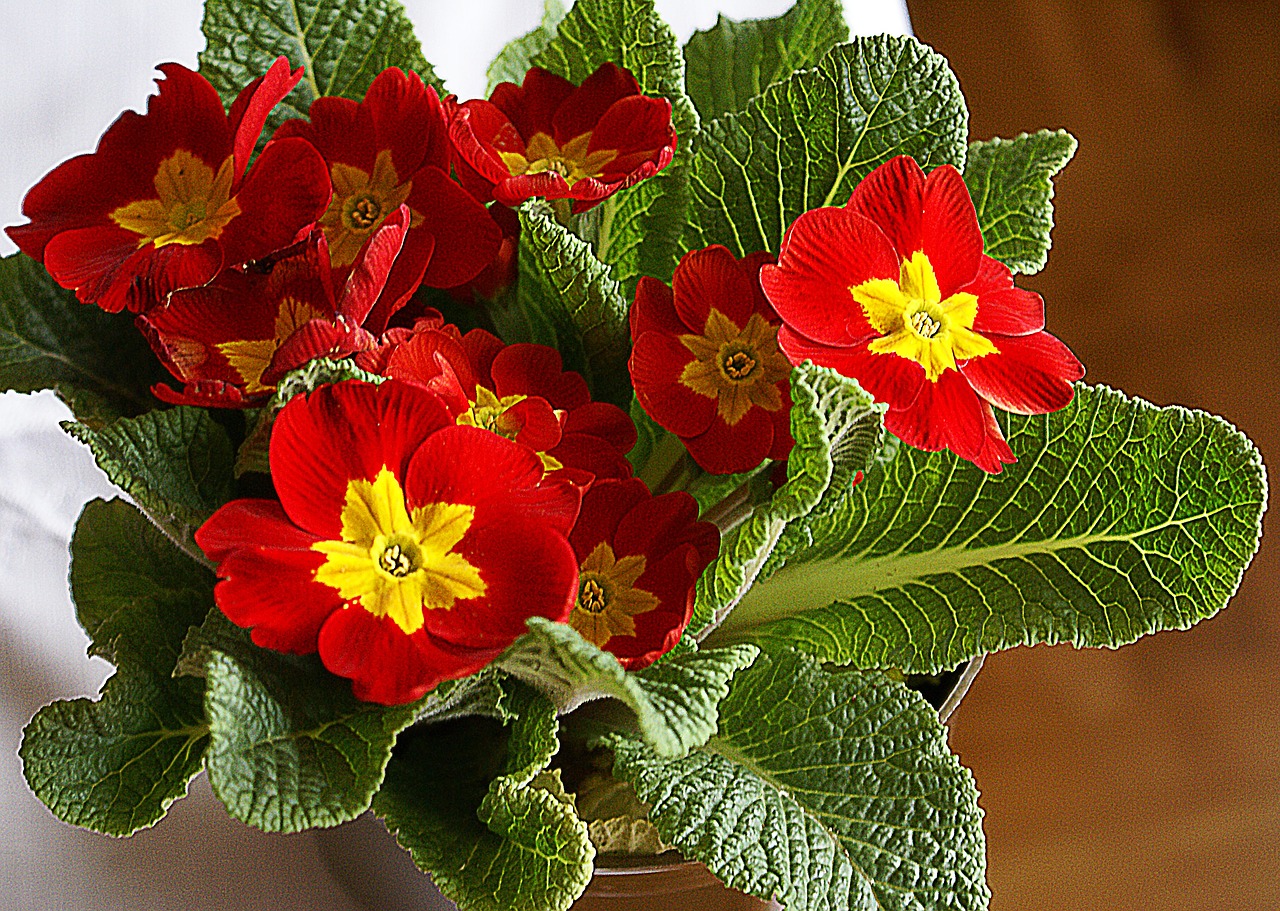
Primulas, also known as primroses, are bright and cheerful flowers that excel in cool conditions, making them a perfect addition to your winter garden. They come in various colours, including whites, yellows, reds, and purples, and their compact size makes them suitable for both raised garden beds and containers.
Primulas prefer shaded conditions, making them ideal for areas under trees or in the shadow of a building. They require rich, well-draining soil and consistent moisture to keep their colourful blooms vibrant throughout the winter. The charming appearance of primulas can light up any corner of a garden, bringing warmth and colour to the chilly months.
Winter gardening tips
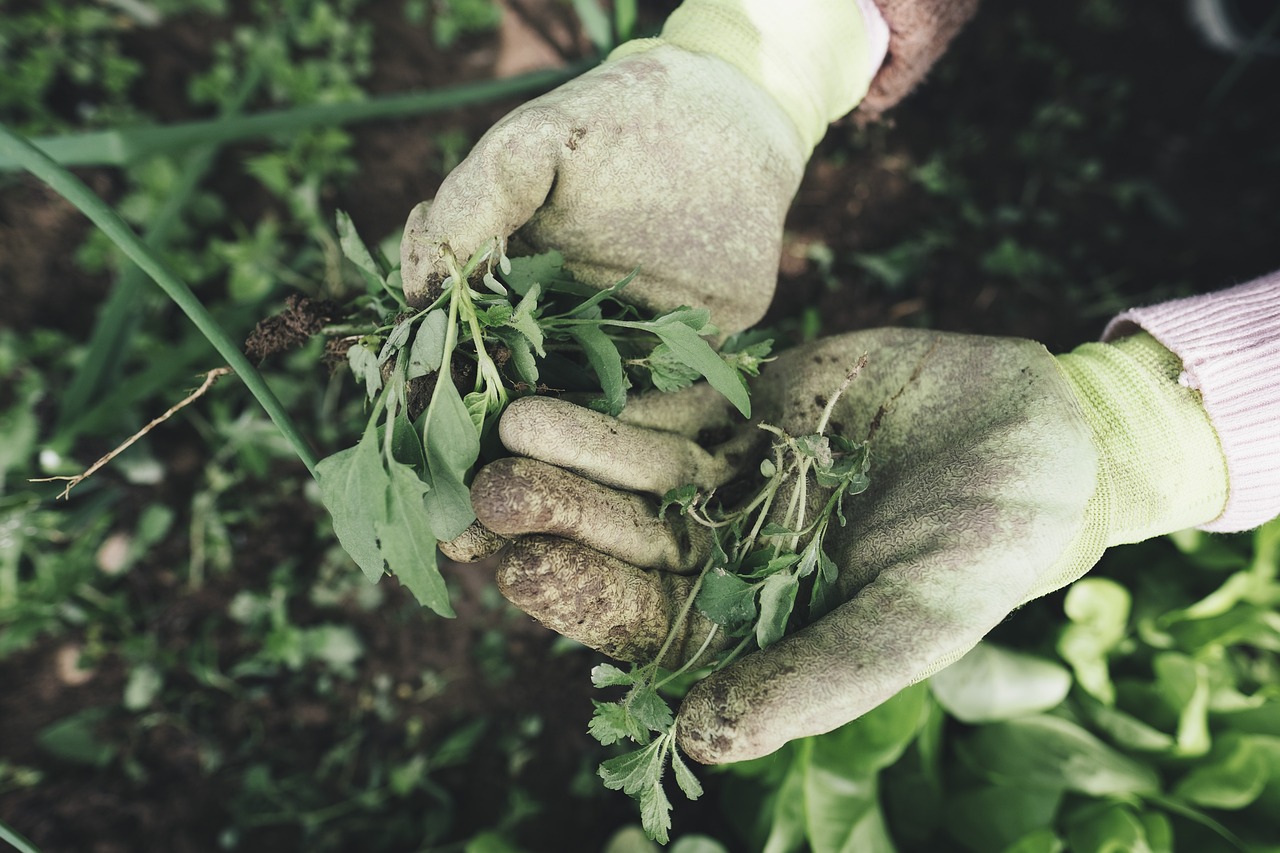
Winter presents unique challenges and opportunities — to ensure a thriving garden during the cooler months, it’s essential to take up specific gardening practices, like mulching, watering, and pest control. These practices promote healthy plant growth and protect against common winter problems, like temperature fluctuations, excessive moisture, and pest invasions.
Mulching is critical for winter gardening. By applying a thick layer of mulch around your plants, you help maintain an even soil temperature, shielding plant roots from the cold and reducing the shock from sudden temperature drops.
Mulch also helps retain soil moisture, which can be crucial during periods of dry winter weather. Organic materials like straw, bark, or shredded leaves are excellent choices for mulch; they not only insulate the soil but also gradually break down, adding nutrients and improving soil structure over time.
Applying mulch in late autumn ensures that your garden beds are prepared for the colder months ahead.
Proper watering practices are vital in winter to avoid common pitfalls like root rot and fungal diseases. Since plants generally need less water during the cooler months, it's essential to adjust your watering schedule accordingly; watering in the morning is particularly effective as it allows plants to absorb moisture throughout the day, reducing the likelihood of waterlogging overnight, which can lead to fungal diseases such as mildew or mould.
Ensure that the soil is moist but not soggy. If unsure, a simple touch test can help determine if additional watering is needed. Plus, focusing the water directly on the soil rather than the plant leaves can further reduce the risk of leaf diseases.
Winter weather can also bring about challenges with pests, particularly slugs and snails which thrive in cool, wet conditions.
Implementing organic control methods can effectively reduce their populations without harming the environment. Beer traps, for example, are a popular choice; by placing shallow dishes filled with beer at ground level, the yeast attracts slugs and snails, which then fall into the container and drown. Alternatively, sprinkling crushed eggshells or diatomaceous earth around plants creates a barrier that these pests avoid due to its sharp edges.
Regularly checking your garden, especially during wet weather, and manually removing these pests can also help keep their numbers under control.
Winter gardening isn’t just possible — it can be incredibly rewarding! By choosing the right plants and providing them with the care they need, you can grow a beautiful, productive garden all year round.
Get your winter garden started with a raised garden bed from the Organic Garden Co! These compact, weather-resistant garden beds are available in a range of shapes, ideal for apartment balconies and rooftop gardening projects.